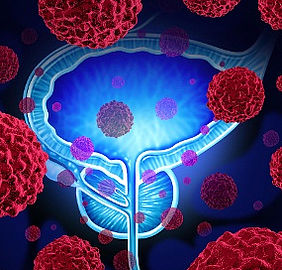Prostate cancer is the most common cancer in men. Although it usually progresses slowly, the mortality rate is relatively high compared with other cancers. Prostate cancer is usually hormone sensitive; unless a cure is achieved by local therapy, androgen deprivation therapy (ADT) is the standard treatment.
If the tumor is discovered late or the disease cannot be stopped despite treatment, the tumor spreads to adjacent tissue and develops metastases. For this metastatic hormone-sensitive prostate cancer (mHSPC), several new treatment options have been introduced in recent years that have shown benefits in combination with ADT. These treatments include chemotherapy with docetaxel, new hormonal treatments, i.e., second-generation antiandrogens such as abiraterone, enzalutamide, and apalutamide, as well as radiotherapy. However, the optimal treatment strategy remained unclear. This situation prompted the Swiss Medical Board to commission an HTA study; this was to investigate whether one of these treatment options is associated with better patient-relevant outcomes and/or has a better cost-benefit ratio compared with ADT alone.
The recently published report concludes that differences were modest for desired effects and variable for adverse effects across studies. However, data on health-related quality of life and adverse effects were inconsistent across studies and unavailable for some therapies.
The results of the health economic analysis suggest that ADT + docetaxel has a better cost-benefit ratio compared to ADT alone and that this strategy is superior to the other therapies in this respect. Nevertheless, the Expert Panel considers the use of all new therapeutic options acceptable and feasible and therefore recommends them in men with newly diagnosed mHSPC if they had not previously received systemic therapy.
The Assessment and Appraisal Reports can be consulted under the following link.
